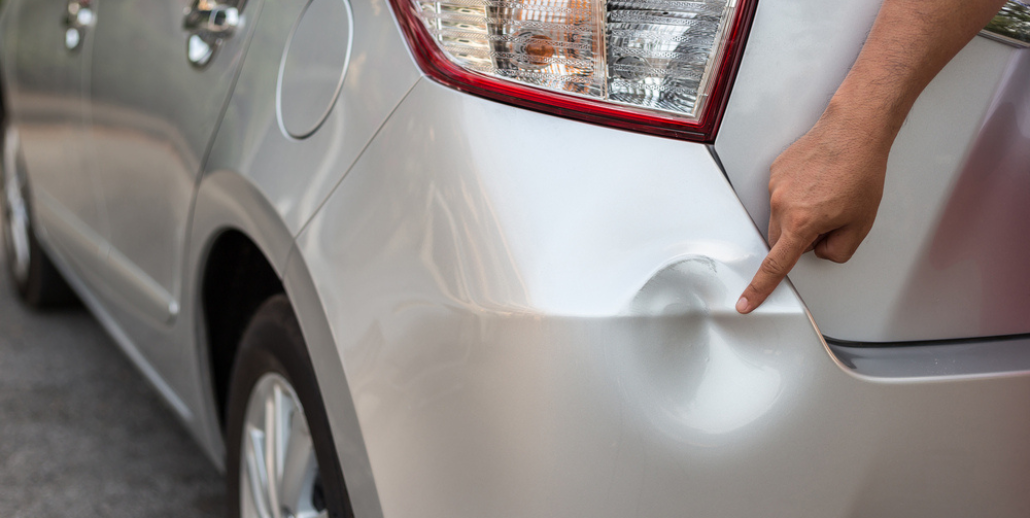Before you go out and pay for dent repair, beware of those who charge too little. As many find out, you get what you pay for in this business. Car owners try to save money because of a tight budget, but they later find out how much it costs them. Not all dent technicians apply the same standards of quality, nor do they have the same skill. Let’s look at how cheap dent repair can cost you more.
Cheap Materials And Rushed Dent Repair
When you work for less, you often work faster to earn more, and this will wind up costing you more in terms of quality. The lower quality materials can build into a costly disaster. Usually, cheaper dent repair will focus on metal integrity, paint finish, or the car’s trim and accessories. This could cost you more in the long run. In some cases, you could need to respray the whole car for it to look right again. That’s not good because the original paint job will always give your car the best value.
The Costs That Go Into Dent Repair
When it comes to paying the painter for the paint labor, the cost goes beyond applying the color and a clear coat. You have many other costs factored in that include:
- Prep time
- Time to set up and mix the colors
- Procedures to ensure paint meets standards
If you want your car to look like how it did before, you must pay more for better quality materials.
Repair Fails and Causes More Damages
A repair failing and causing more damage is the greatest danger of going with one that’s too cheap. Good auto body repair shops understand how to protect the integrity of your car’s structure and the paintwork. Let’s say you paid $125 to repair a dent, but that low-budget dent repair can wind up costing you $1,250 because the original repair failed altogether. The $125 paid was a total loss.

Factory Paint Job: The Most Expensive
The factory paint job is the most expensive, and every auto body shop will struggle to replicate that paint job without a higher cost. When you screw it up with a cheap dent repair company, this can hurt the resale value of your car. At Elmer’s Auto Body, we have found that a car with a dent visible from 10 feet away will cost you from five to 10 percent of your car’s resale value.
When you go to repair a dent, every reputable auto body technician will focus all their efforts to keep from harming the original paint job. When you hire someone cheaply, you risk that they may cut corners, and they may care less about protecting the original paint job.
DIY Dent Repair Kits
You may have seen a DIY dent repair kit for $17. Let us give you some advice: Don’t buy it! It’s a laughable scam. When things sound too good to be true, they probably are. Let’s put this into perspective. Our auto body shop has invested over $10,000 into specialized equipment to remove dents. Why would we do that if we could use a $17 repair kit? The answer comes down to quality dent repair. You will see much better results from the $10,000 tools that we use over a $17 kit that may even further damage your car. We have had customers who used those kits enter our shop frantically telling us how they tried to use a kit first. You have another harmful myth on YouTube showing people using dry ice as a way to repair dents. They believe that the extreme cold caused by the dry ice contracts the metal to make it pop out. Here’s the problem: The people we spoke with who tried it said that it delivered uninspiring results. The other risk is that its rapid contraction will cause further damage to your paint job.
Dent Repair Scams
You have some legitimate operations offered for cheap, and we’re not going to put those down, other than to say that it often winds up costing you more because of limited resources and time to turn a profit. However, you have some actual scams in this industry, and one of the scams is where a “dent repair professional” drives up to your car. They tell you how they noticed that you have dents in the car, but they can fix them for a reduced price. The scam almost always follows the same lines where you need to pay in cash because they can’t let their boss know. After you pay, they apply this so-called dent remover liquid that does nothing. They then tell you to give it 24 hours before the dent comes out on its own. If you’re lucky, they used car wax, which is what they use most often. However, we have even heard of cases where the scammer uses body filler, which ruined the victim’s paint job. The insurance provider also refused to cover them. Don’t buy into the lie that a magical liquid exists that can remove dents. There is no such thing.
Final Thoughts
Google, “Auto body shop near me,” and you will probably see Elmer’s Auto Body come up on your screen. We would love the opportunity to look at your dents and determine a good course of action. Going with cheap dent repair isn’t worth the trouble that it often brings. You can call us today at (856) 218-0202.










